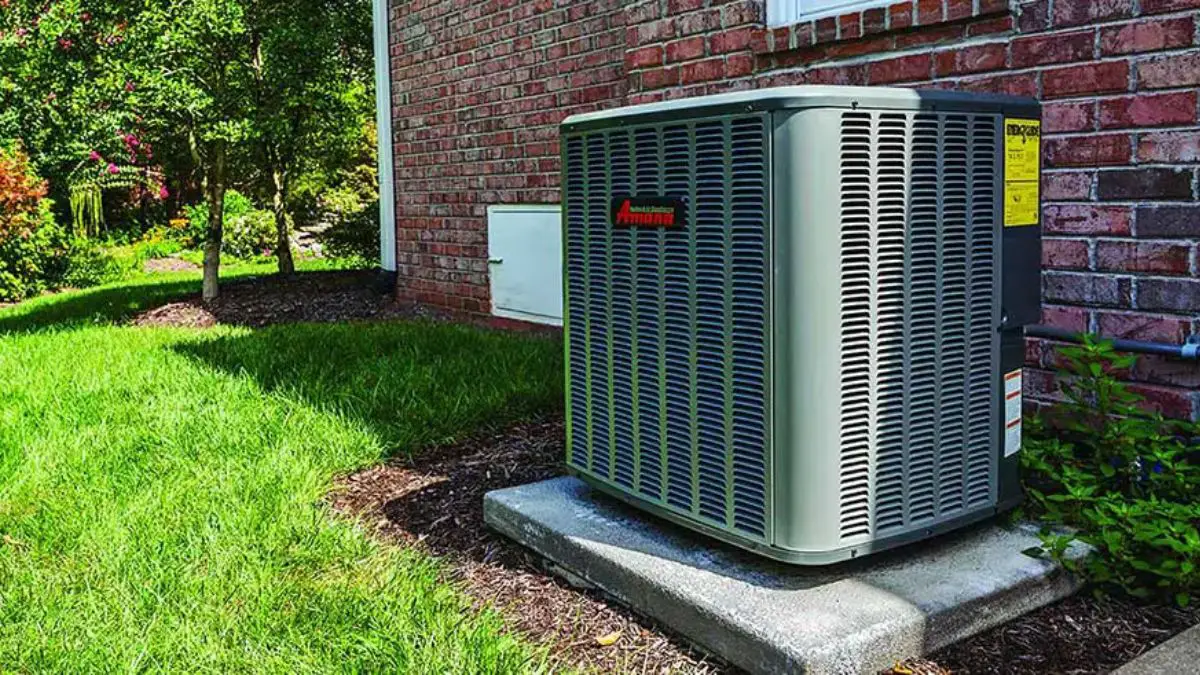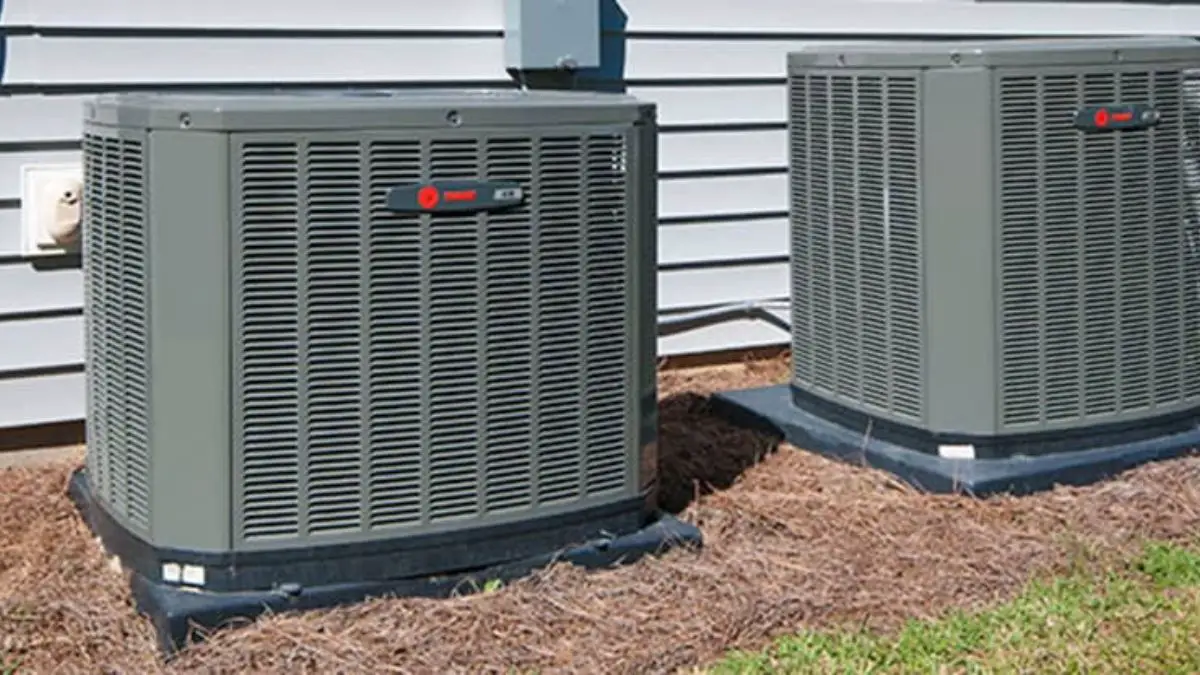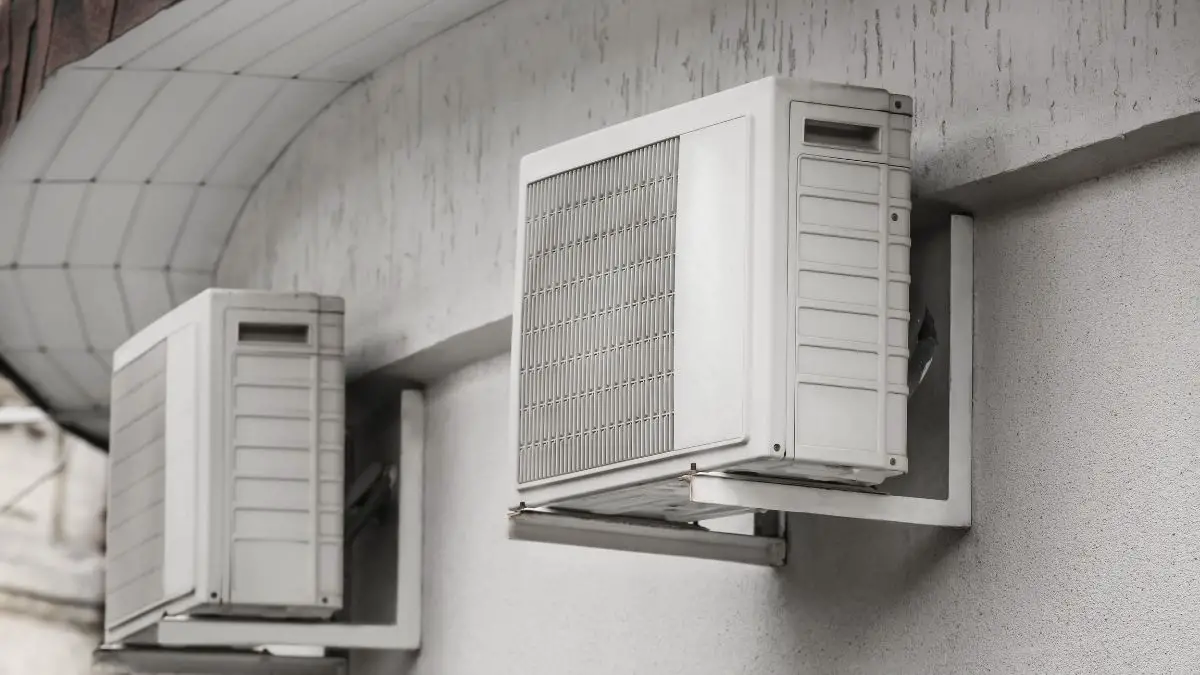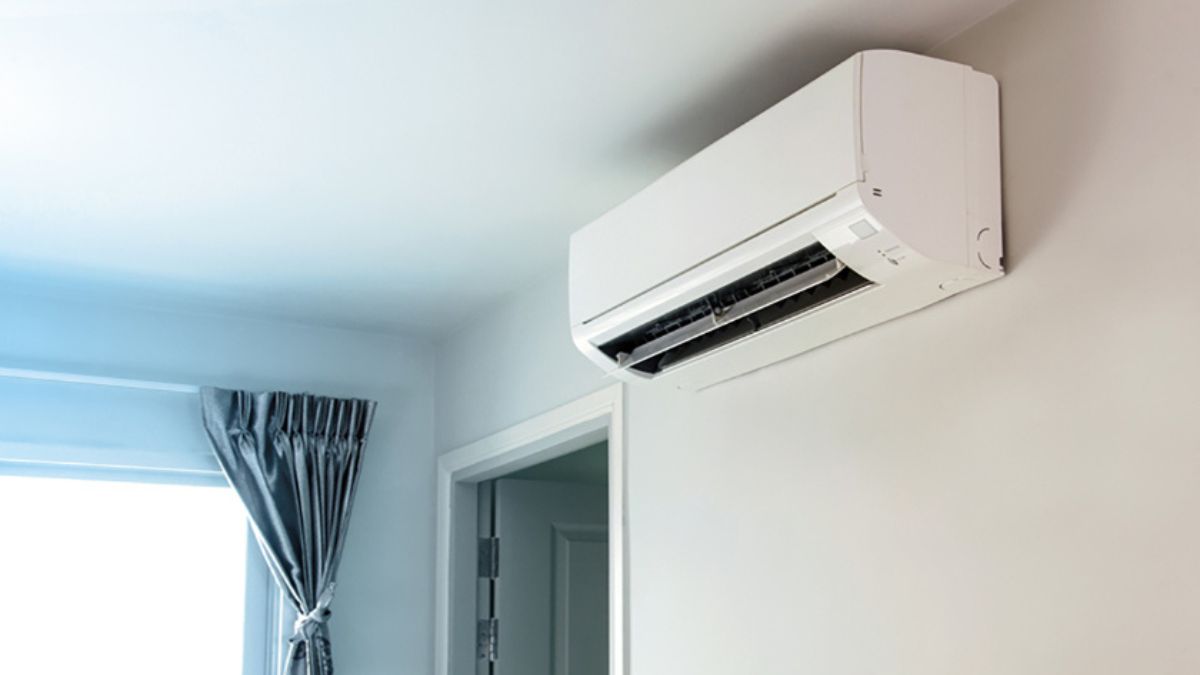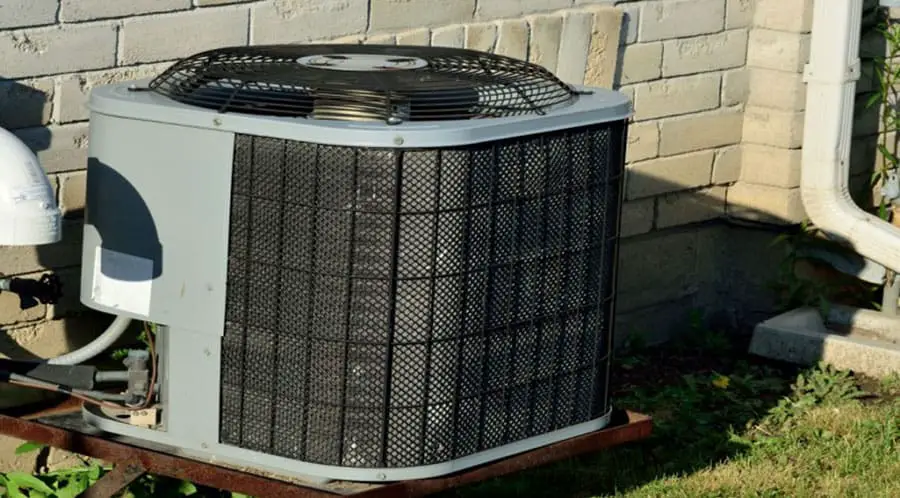
One of the common problems we find during the home inspection is that the outside heat pump or air conditioner is not level. This may seem like a minor problem but it can have severe problems in the long term if not addressed.
So should the heat pump or air conditioner be level? Heat pumps and air conditioners need to be level to operate at their optimal efficiency rating. Heat pumps and air conditioners that are not level can become unstable, which can cause damage to the internal parts. [adinserter block=”3″]
Heat pumps and air conditioners don’t have to be perfectly level. It is acceptable to be within 10 degrees of being level provided it’s positioned on stable ground or strapped to a raised platform. Severely unlevel units can cause long term problems with the fan motor and the compressor because of improper lubrication and vibration. This causes excess wear on the fan motor and compressor which can lead to premature mechanical failure.
Let’s look at some of the problems experienced by a heat pump or air conditioner that is not level and what you should do to correct the problem.
Every house can experience an unlevel heat pump or air conditioning system. However, where I live in the south, we tend to see this more in slab foundations where the land is naturally graded away from the house. In other parts of the country, the natural slope of the land can be the main contributing factor regardless of construction type.
Heat pumps and air conditioners outside usually sit on a plastic or concrete pad. If the pad the unit sits on is not properly leveled, the unit will also be unlevel. This is the case even in new home construction.
Over time the soil compacts causing natural settlement. Stormwater runoff from the roof can also erode away the soil around the unit causing it to settle.
The Flow of Compressor Oil and Refrigerant
The most important factor in a properly working heat pump or air conditioner system is the flow of refrigerant and compressor oil through the copper tubing in the system. As the unit settles over time, the refrigerant and compressor oil can get trapped in the copper tubing and not flow freely through the system.
This can cause the compressor oil to become trapped in the copper tubing resulting in a liquid dump on the compressor or an uneven distribution of the compressor oil. This can damage the compressor.
If the compressor runs for a long enough period of time without enough compressor oil or refrigerant the compressor can seize up and require replacement.
Damage From Excessive Vibration
Unlevel heat pumps and air-conditioning systems can also cause excessive vibration. These systems need to be properly supported. When they are not properly supported, they can move or shift during operation. Excessive vibration will cause the system to be noisy and cause excess wear and tear on the entire system.
Severe vibration can cause the copper tubing inside the unit to become loose or kinked causing it to leak or restrict the flow of refrigerant and compressor oil.
Vibration in the fan motor can cause the motor to run excessively and overheat. The fan blades may also wobble, striking the grill cover damaging the blades.
How to Check if System Needs Leveling
This can be done by using a carpenters level. In severe cases, you will not need a carpenters level as it is very obvious the system is not level.
Keep in mind that it is common for your heat pump or air conditioner to be slightly tilted forward to allow for water runoff as rain falls through the top grill where the fan is located and lands in the base of the unit. This allows the water to drain off and not sit and rust the base of the unit. The unit should not be tilted forward by more than 10 degrees.
If your system is tilted to the left or the right you have a settlement problem and need to have the system leveled. The system is not designed to tilt to the left or the right and this will cause flow problems with the refrigerant or compressor oil in the copper tubing.
If your system is tilted backward you have a settlement problem and need to have the system leveled. The system is not designed to tilt backwards as well. This will also cause flow problems with the refrigerator or compressor oil in the copper tubing.
Can I Level my own Heat Pump or Air Conditioning System?
It is not recommended that you try to level your heat pump or air conditioning system yourself. While this may look like an easy DIY type of job there may be an underlying issue that you’re unaware of which may require professional expertise.
Attempting to move the system yourself can cause damage to the copper tubing resulting in a leak. The pad the system is sitting on could be damaged or worse you could damage the pad yourself trying to move it. These systems are also very heavy (approximately 120 pounds) and can cause injury if you try to lift it by alone.
There are several methods to level a heat pump or an air-conditioning system. There is no clear-cut answer to how this should be done in and each case is unique.
Part of leveling a heat pump or air-conditioning system involves addressing the problem that originally caused the situation in the first place. This may mean replacement of the pad, repositioning the pad or elevating the system off the ground entirely by building a raised platform for the system to sit on.
Ideally, the heat pump or air conditioner system should sit 4-8″ off the ground. However, often this is not enough because when contractors install the systems the area has not been landscaped. Landscaping around a system will reduce this clearance and can cause the base of the system to rust out if the base is covered by organic material like straw or mulch that holds water.
A licensed heating and cooling contractor should thoroughly examine your heat pump or air conditioner when leveling service is performed. They will need to check for loose connections on components (such as fan motors and compressors) and pressure test the copper tubing for leaks.
It is recommended that this type of annual heat pump service be performed in the spring or fall if possible. The reason this is recommended is that the system may need to be completely disconnected in order to be properly leveled.
This could mean you may be without heat or air conditioning for a day or longer. During the spring and fall months, heat pumps and air conditioners can often go several days without running which means little to no inconvenience for those living in the residence.
However that being said, this service should not be put off If discovered during the summer or winter months. This problem should be dealt with immediately to avoid potential damage to the system, especially if the unit is severely unlevel.
Related Questions
How high should a heat pump or air conditioner be off the ground? This will vary depending on your location. Normally it is recommended the system be 4-8 inches off the ground to provide adequate drainage and prevent snow buildup blocking the coil. In some areas, such as in a flood zone, the system may need to be much higher. It is common in some coastal areas for these units to be elevated on platforms several feet in the air.
Where should a heat pump or air conditioner be installed? The outdoor condenser of the heat pump or air conditioner should be installed on the side or back of the house, ideally in a sunny location. It should not be installed too close to the house, shrubbery, or other vegetation as the unit requires airflow to work properly. The air handler of the heat pump can be installed indoors.
Can air conditioners be covered? The top of the air conditioner system should not be covered when the system is in use. The fan is located at the top of the air conditioner. This fan needs to blow unobstructed when in use. It is common in colder climates for air conditioners to be covered when not in use to prevent snow accumulation inside the unit. You can enclose a heat pump provided proper air clearances are provided.


